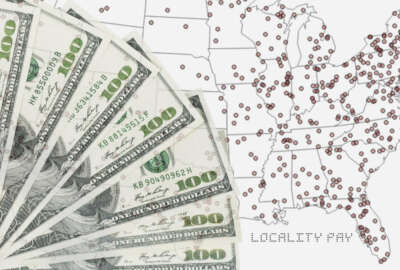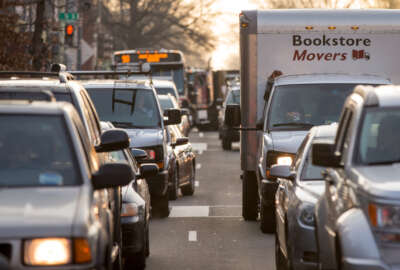Would you telecommute for a smaller FERS annuity?
Lots of federal workers have said they might be willing to take a pay cut if they could do their jobs from a site a hundred miles from their home office.
Lots of federal workers have said they might be willing to take a pay cut of they could do their jobs — now based in Washington, D.C.; Atlanta, New York City, Los Angeles or Boston — from a site which might be a hundred, maybe even a thousand miles from their home office. And for many, it makes sense.
Working and living a long way from a high-cost major metro center could save thousands of dollars a year. A place where people don’t lock doors or cars, where a bad rush hour lasts 15 minutes and a cup of coffee costs less than a gallon of gas. To them a smaller income is offset by a less stress and time wasted getting to and from work. Under the locality pay system many workers, like those being forced to leave D.C. for Kansas City and Colorado, will get lower base salaries and generally smaller future pay increases. That’s because of the locality pay differences between many big city metro areas and places scattered around the country that are in what is called the rest-of-U.S. (RUS) locality region. But what about after they leave federal service? When they retire, then what?
Federal annuities both Civil Service Retirement System and Federal Employees Retirement System are based on the employees salary, and length of service. The higher your salary and the longer you work, the bigger the pension or, as most feds prefer, the annuity. But if you keep the same job and switch from one locality system to another, you could lose thousands of dollars of pay each year. And that would have a major impact — as in downward — on your eventual annuity payment.
It’s one thing to accept less money to get out of Boston, Chicago or Philadelphia to be able to work remotely from a haven in RUS when you are working and saving money or rent, housing, taxes and commuting expenses. But what about after you retire? Could you deal with a lower lifetime income than you would have had had you toughed it out in San Francisco or Houston or Miami?
In an April 19 column about D.C.-based Agriculture Department employees being moved to Kansas City, I asked, “Would you be willing to switch allegiance from the Nationals or the Redskins for the Royals and the Chiefs, knowing it would likely mean a significantly lower lifetime retirement annuity than if you had stayed inside the Beltway?”
Lots of people commented on the pay differential. Many said they would take less if they could work from home.
This week, Federal News Network reporter Nicole Ogrysko took a hypothetical deep dive into the pay differentials between D.C. and RUS, and what feds might face if they telecommuted from outside their home office. Some of the numbers are jolting.
Federal and postal workers are based all over the U.S. and the world. But many are now living and working in the 30 cities with the worst traffic in America, starting with — surprise, surprise — Boston. By one estimate commuters there spent 149 hours and $2,205 a year in traffic. Not much better in Chicago, Philadelphia, New York City and D.C., in that order. Surprisingly, unless you live in Oregon, Portland makes the dirty thirty listing.
See where you stand in the commuter hall of shame.
And would you accept a smaller FERS annuity if you could telework from the site of your choice for most or all of the rest your career? Let me know at mcausey@federalnewsnetwork.com.
Nearly Useless Factoid
By Amelia Brust
Elvis Presley’s manager Colonel Tom Parker had an unprecedented marketing strategy for his client that included selling “I Hate Elvis” badges, to even make a buck off the singer’s critics.
Source: CBC
Copyright © 2024 Federal News Network. All rights reserved. This website is not intended for users located within the European Economic Area.
Mike Causey is senior correspondent for Federal News Network and writes his daily Federal Report column on federal employees’ pay, benefits and retirement.
Follow @mcauseyWFED





